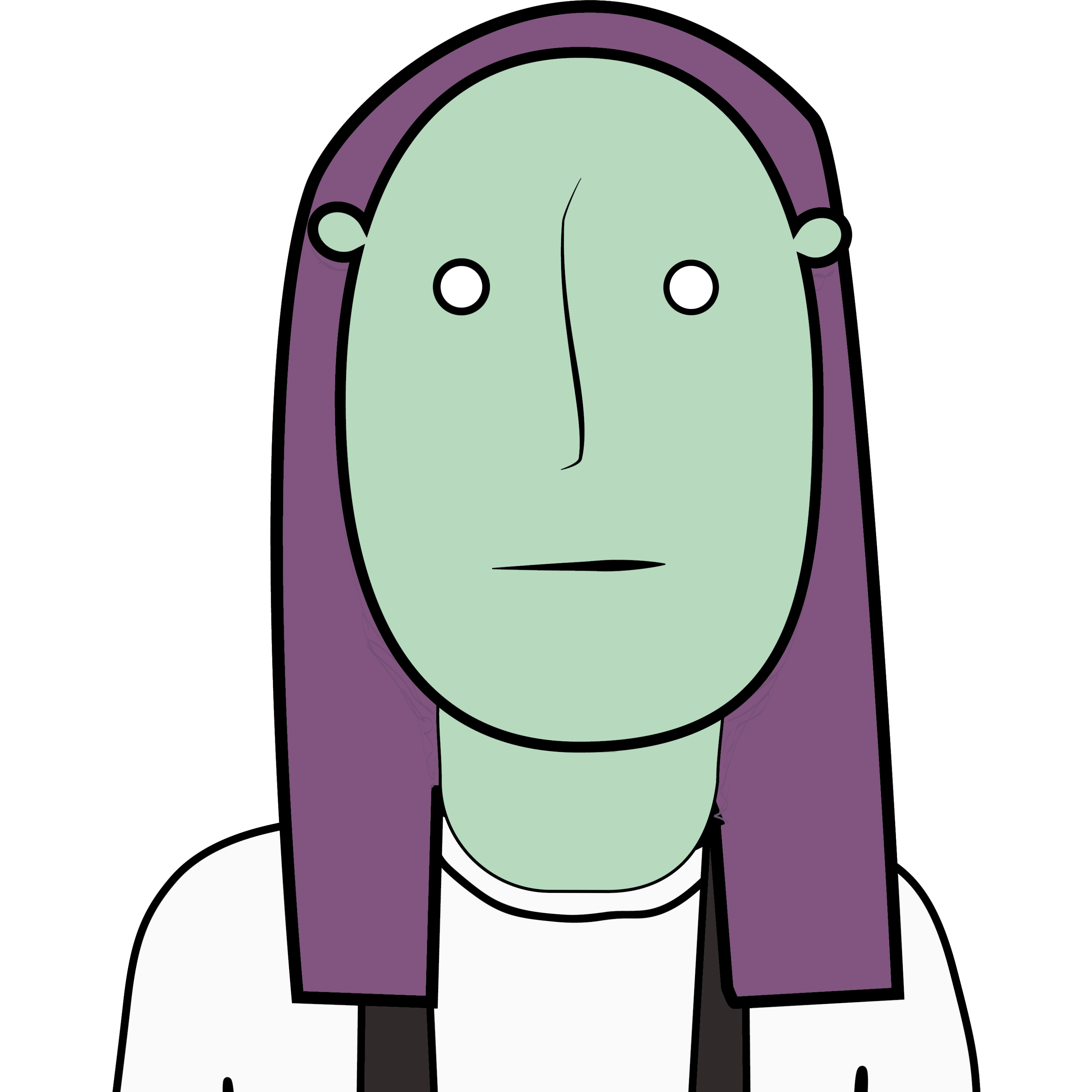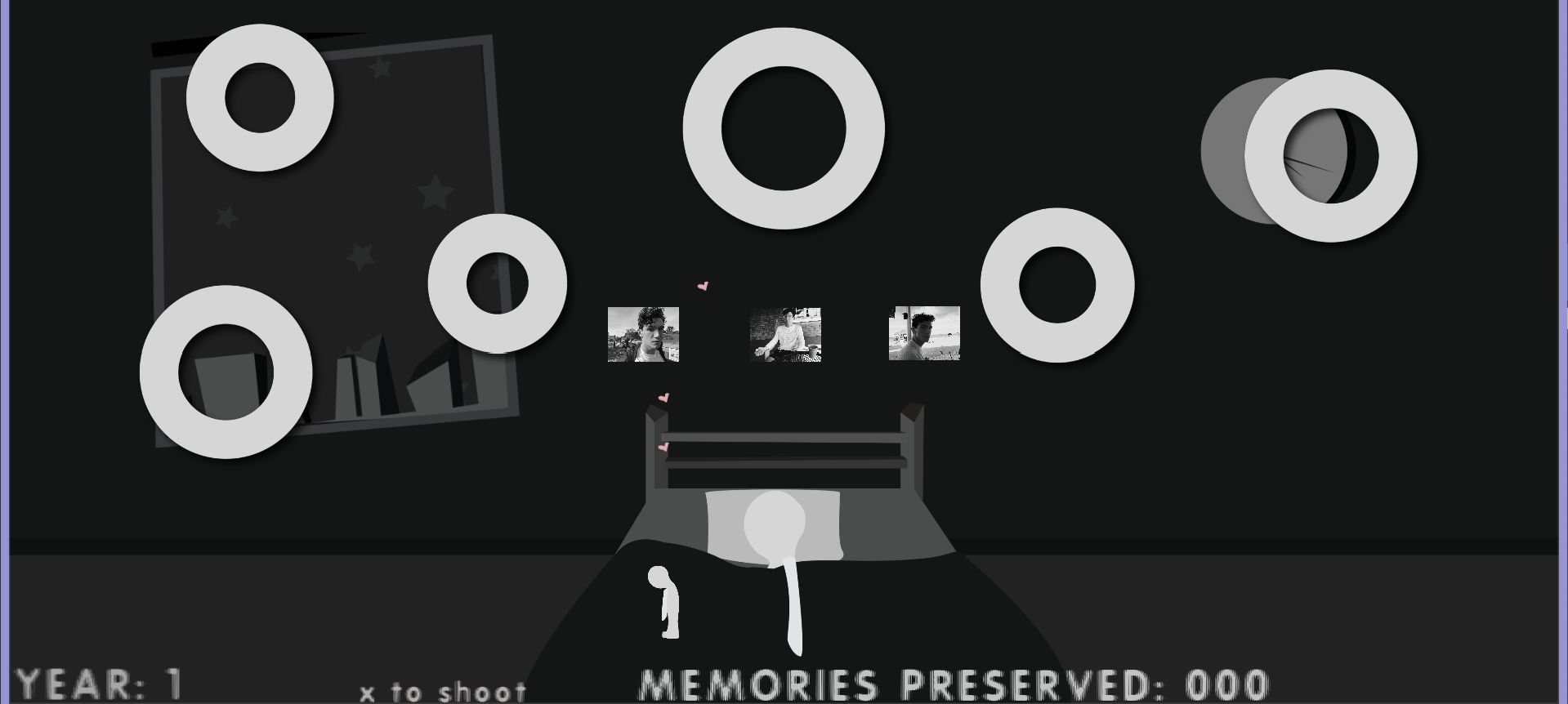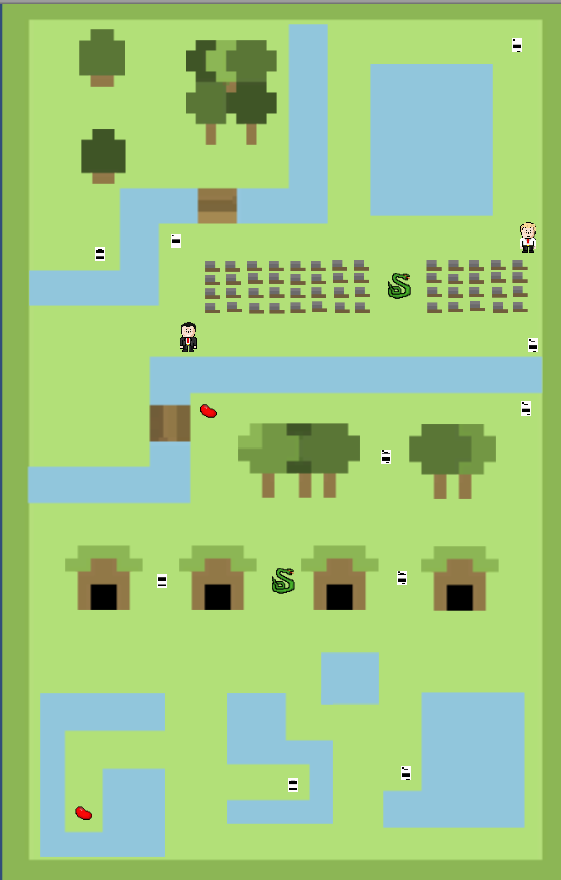What aspects of your game changed the most over the semester?
Originally, I had planned my game in a way that wasn’t really radical–it didn’t give the player the opportunity to choose their path. At first, it was just going to be the player could talk to the coworkers and do favors for them and that was it–but as my story developed the manager became more included and now the way the story of my game will play out is that the player has the opportunity to unionize or get a raise/promotion. There’s a genuine choice to be made between two seemingly good options, not just “unionize or don’t.”
What parts of the game stayed pretty much true to the original idea?
From the beginning, I knew that I wanted cigarettes to be the social currency of the workplace. I wanted the player to use cigarettes to get to know the coworkers and build solidarity levels–the cigarettes also bring a playfulness to the game which I think makes the horrible workplace more fun.
How could you have used your paper model to save time?
The paper game was very helpful in figuring out how conversation would work. The first time we ran my paper game my conversations kept falling apart and they weren’t set up properly, which was helpful, even though it was at first frustrating. The paper model showed me how I needed to structure the conversations within the levels to ensure that the player would understand the goals of the game.
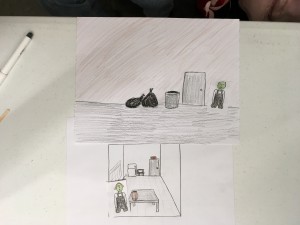
What surprised you about your abilities to make your game?
Honestly, everything about this semester surprised me. I was very overwhelmed and a little afraid at the beginning of the semester–but I couldn’t believe that I managed to keep up with the class. Coding was a fun and engaging puzzle to figure out and of course, I got frustrated but I am really proud of myself for getting conversations to work again after they broke for about three weeks after spring break.
What was easier to do than you might have expected?
Animation was easier than I was expected I think. It was super tedious, yes, but once you break down the steps it is easy to figure out to build the assets to move in a realistic way. Setting up the animator and controller in Unity was definitely more difficult, but overall animation was a more manageable task than I had expected.
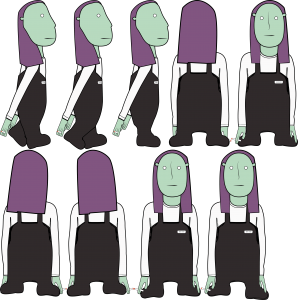
What was harder?
Though I already mentioned that I was surprised at how quickly I picked up some aspects of coding, that definitely doesn’t mean I thought it was easy. At the very beginning, learning the differences between very basic types of functions and variables seemed impossible to me. I didn’t know what any words meant and I kept a notebook to remember the definitions of all the terms the textbook referred to in the chapters. That was a lot of work, but after the first few chapters the hard work paid off and I felt somewhat on top of the code.
How important was time management on this project?
Time management was definitely important, since it was always a stressor if I had worked on something up until the last minute but then some aspect of the game broke and I had to come to class with a partially broken game because I didn’t leave myself time to debug and unravel all of the error messages that would pop up when I would try to play my game.
What would you have done/chosen to do differently?
If I had the opportunity to start over with what I know now, I would maybe attempt a to build a more linear story for my first game, as what I have set up now feels a little ambitious for my first game. I think if I had a linear storyline with sequential levels, it would be a lot easier to build and I could devote less time to figuring out the logistics of the story and more time to expanding my understanding of C Sharp and the Unity engine.

